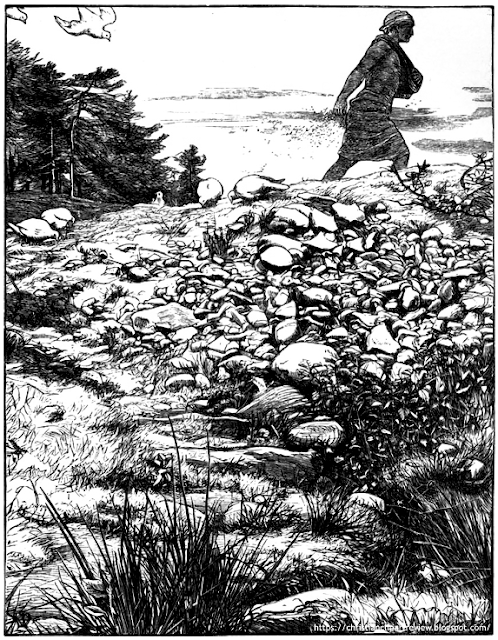1st pupil --
2nd pupil --
3rd pupil --
This took place March 15, 1783. In the midst of his reading - for he addressed his officers by aid of a manuscript - Washington made a short pause, took out his spectacles, and begged the indulgence of the audience while he adjusted them, at the same time observing:
"Gentlemen, I have grown gray in your service, and now find that I am growing blind."
An eye-witness speaks of the act as being "so natural, so unaffected, as to render it superior to the most studied oratory! It found its way to every heart, and you could see sensibility moisten every eye!"
2nd pupil --
The speech, by James Otis, against the "Stamp Act," fully illustrates the feeling prevalent against it: "England may as well dam up the waters of the Nile with bulrushes as to fetter the step of freedom, proud, and firm in this youthful land. Arbitrary principles, like those against which we now contend, have cost one king of England his life - another his crown - and they may yet cost a third his most flourishing colonies.
"We are two millions, one-fifth fighting men. We call no man, Master!
"Some have sneeringly asked: 'Are the Americans too poor to pay a few pounds on stamped paper?' No! America, thanks to God and herself, is rich. But the right to take ten pounds implies the right to take a thousand.
"Others, in sentimental style, talk of the immense debt of gratitude which we owe to England. And what is the amount of this debt. We plunged into the wave, with the great charter of freedom in our teeth, because the fagot and the torch were behind us. We owe nothing to the kind succor of the Mother Country - Tyranny drove us from her, to the pelting storms which invigorated our helpless infancy."
The Act was passed by the British Parliament, March 22, 1765 - but was the occasion of so much excitement, overt resistance, and such violent protests, that it was repealed the following year, and a little later a "Bill of Indemnity" was passed for the benefit of those who had incurred its penalties.
3rd pupil --
As indicative of the spirit of the times in which Washington lived, the following extract from Webster's ''Supposed Speech of John Adams on the Declaration of Independence" may be an illustration:
"Sink or swim, live or die, survive or perish, I give my hand and my heart to this vote. It is true, indeed, that in the beginning we aimed not at independence. But there's a Divinity that shapes our ends. The injustice of England has driven us to arms; and, blinded to her own interest, for our good, she has obstinately persisted, till Independence is now within our grasp. We have but to reach forth to it and it is ours. Why, then, should we defer the Declaration? If we postpone independence, do we mean to carry on or give up the war? Do we mean to submit, and consent that we ourselves shall be ground to powder, and our country and its rights trodden down in the dust? I know we do not mean to submit. We never shall submit. The war must go on. We must fight it through. And if the war must go on, why put off longer the Declaration of Independence? That measure will strengthen us. It will give us character abroad. Sir the Declaration will inspire the people with increased courage. Read this Declaration at the head of the army; every sword will be drawn from its scabbard, and the solemn vow uttered to maintain it or to perish on the bed of honor. Publish it from the pulpit; religion will approve it and the love of religious liberty will cling round it, resolved to stand or fall with it. Send it to the public halls; proclaim it there ; let them hear it who first heard the roar of America's cannon; let them see it who saw their brothers and their sons fall on the field of Bunker Hill, and in the streets of Lexington and Concord, and the very walls will cry out in its support.
''Sir, before God, I believe the hour is come. My judgment approves this measure and my whole heart is in it. All that I have and all that I am, and all that I hope in this life, I am now here ready to stake upon it - and I leave off as I begun - that, live or die, survive or perish, I am for the Declaration. It is my living sentiment, and, by the blessing of God it shall be my dying sentiment - independence now; and independence forever."











